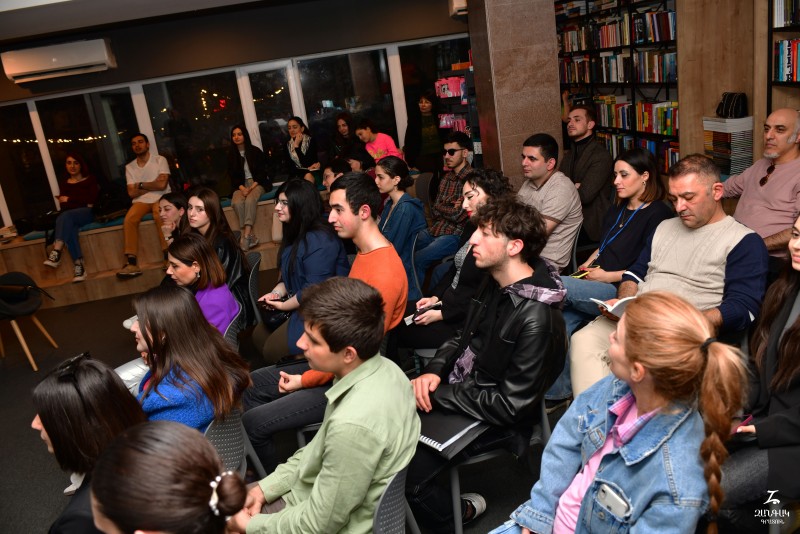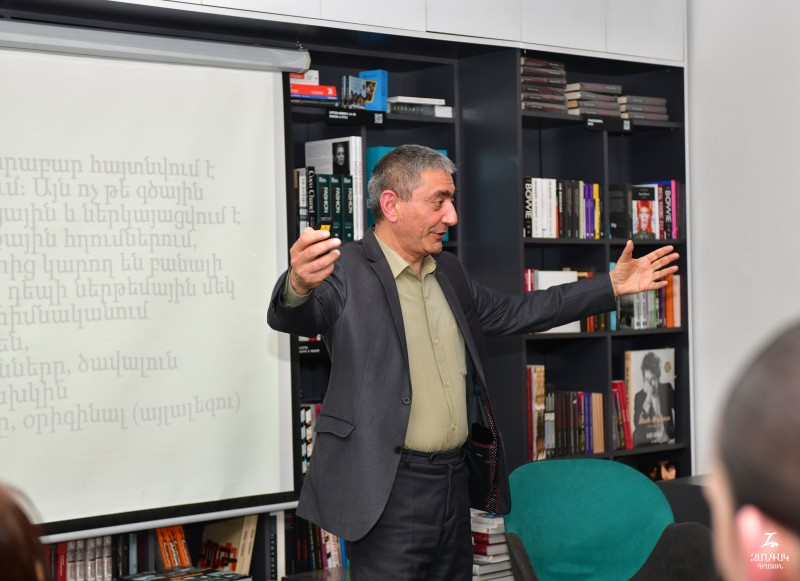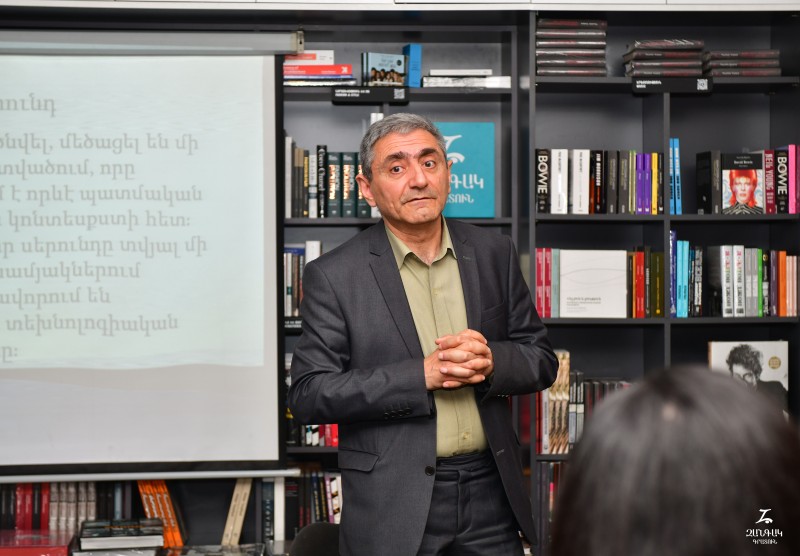From New Generation Books and Content to Functional Illiteracy. Newmag editor-in-chief's open lecture (photos)
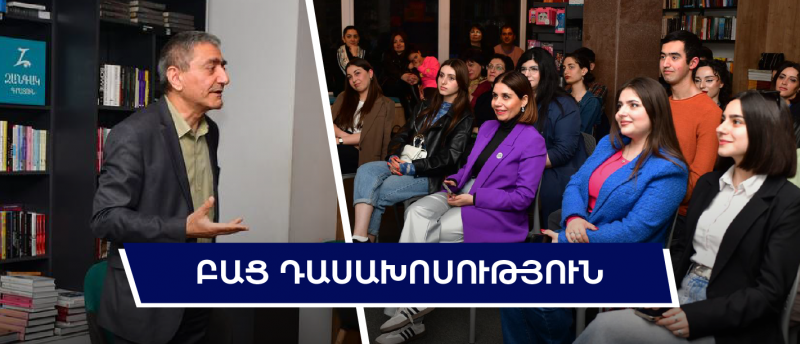
The 2nd open lecture of the publishing house took place in the "Zangak" bookstore within the framework of Newmag month. During the lecture, Newmag editor-in-chief Gnel Nalbandian presented who the authors of the new generation are, and what content the ne
Gnel Nalbandyan, the editor-in-chief of Newmag Publishing House, delivered a lecture on "Books and Content for the New Generation" at the "Zangak" bookstore. At the onset of the lecture, Nalbandyan elucidated the concept of the new generation. According to him, sociologists define a generation as the collective of individuals who have lived through a span of 25-30 years, with the assumption that there may be 3-4 generations within a century.
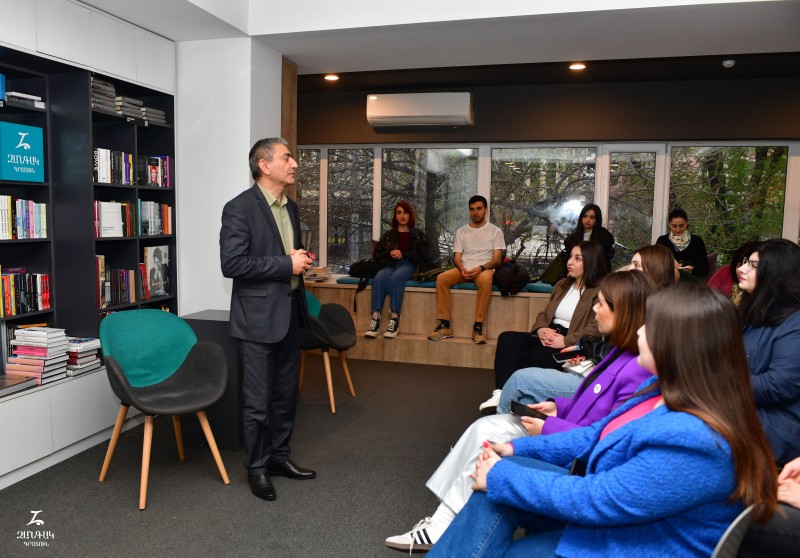
"The new generation, in essence, could be perceived as both the final generation and a prospective generation, depending on whether we anticipate the emergence of a subsequent one. It also encompasses the youth who embody the future of society, as we entrust our hopes to them," remarked the editor-in-chief of Newmag, as he endeavored to discern the contemporary reading preferences of this generation and their comprehension of the material. Is it capable of accurately grasping the essence of what he reads? According to him, many individuals in his surroundings appear to be literate and engaged in reading books.

"We live in a world populated by functionally illiterate individuals. Their cognitive processes diverge; not everyone who claims to read comprehends as we might. Functional illiteracy, a prevalent phenomenon worldwide, is marked by the incapacity to employ language skills effectively. Essentially, individuals possess knowledge of letters, engage in reading, and absorb information, yet struggle to apply it practically—it fails to translate into action. When prompted to implement what they have read, it often becomes apparent that they did not grasp its essence," emphasized the editor.

Functional illiteracy typically becomes evident around the age of 8, as Nalbandyan points out. Individuals at this stage struggle to articulate what they have read to a teacher, parent, or friend, and this difficulty often persists into adulthood. According to UNESCO's definition, a functionally literate individual is someone capable of engaging in public activities and whose literacy enhances effective participation within a group or community. In essence, if one can actively participate in public events, foster successful cooperation, and contribute to personal and communal development, they are deemed functionally literate. Conversely, if these criteria are not met, regardless of having read or written, for instance, 50 books, they are classified as functionally illiterate.
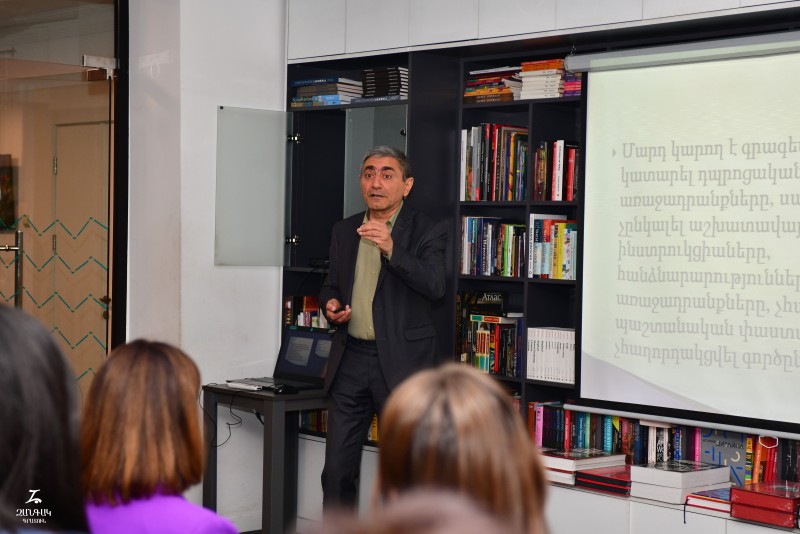
We must apply what we read to make sense, otherwise we are wasting time reading books. And how to identify the functional illiterates around us, by what characteristics? The speaker pointed out the fields: household, legal, financial, language, information, media literacy, and computer, where they appear very often.

"Therefore, if elementary literacy is raised in schools, logic, and contextual thinking will automatically increase. It makes no sense to increase media literacy if a person is functionally illiterate. For one thing, he will receive absurd information from TikTok and Instagram and be guided by it.
Functional illiterates avoid complex problems, are convinced in advance that they will fail, have no motivation to solve complex problems, constantly repeat the same mistakes, and avoid intellectual tasks because "they are flu, busy, tired, have no desire".
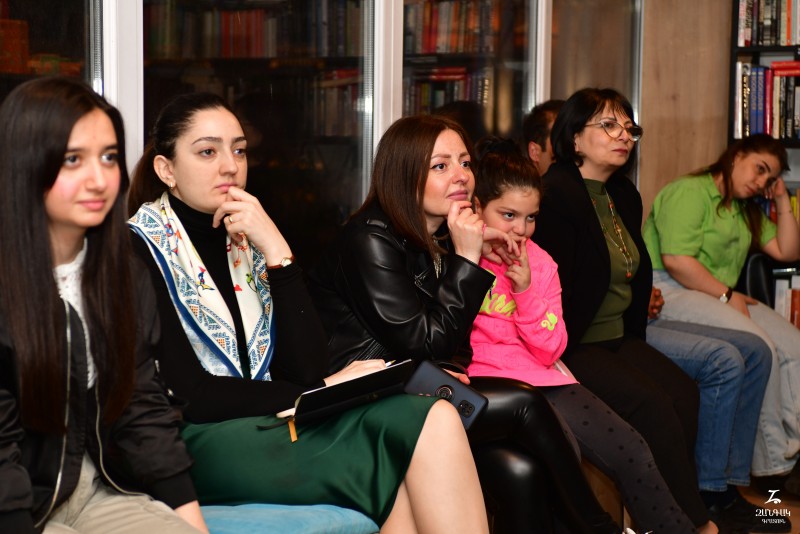
According to Gnel Nalbandyan, there are ways to eliminate functional illiteracy: the development of language abilities, the analysis of social and cultural expectations, the generation of self-development resources, the assessment of illiteracy, which is assessed in different countries by different methods and according to the educational system and according to the freedom of educational resources.
Read also

Winterfest to feature David Georgyan’s sci-fi action novel Impedance (trailer)

At Winterfest 2026, Newmag will present Marianna Hakobyan’s “Don’t Change the Names” (trailer)

Closing and Award Ceremony of the “Sprout in Armenian – 2025” Competition at Newmag Winterfest

“I hope my story will inspire many and help them keep believing and dreaming.” Henrikh Mkhitaryan’s welcoming speech to Armenian fans (video)



